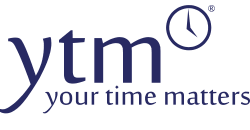Why do many people avoid sales conversations?
Selling. The word alone strikes fear into many, however sales is the life blood of business, yet many feel fearful or anxious about actually doing so.
Our founder, Kerryn Powell met Ashleigh Alsadie, an accomplished speaker and entrepreneur, who currently runs a successful lead generation firm The PromoDonna. The PromoDonna creates high quality B2B sales leads and meetings through cold calling and prequalification for hundreds of companies throughout Australia. Kerryn and Ashleigh were both members of a local BNI group at the time and over the past eight years have worked together to provide insights that help business owners and professionals to better understand the role of conversation in the sales process .
So, why do many people avoid sales conversations?
It is unlikely that prospective clients will actually threaten you or cause you any physical harm! Rather, it is more that we get carried away by the fear of what might happen if we contact a prospective client, propose a high-cost solution, and then get rejected.
Understand that receiving a ‘no’ from a prospect is actually a good thing.
So is there a way to deal with this rejection and get over the fear of selling you ask?
Ashleigh says “The answer is yes – and it all comes back to changing your perception on sales rejection and to understand that receiving a ‘no’ from a prospect is actually a good thing.
The average business owner will mentally and emotionally give up on making the sale once they hear their first ‘no.’ They become disheartened; it shows in their eyes and their body language. They tend to avoid eye contact with their prospect after that and they mumble their goodbyes.”
Stay engaged and ask more questions
The word ‘no’ in a sales situation can actually mean several things, and there’s no way you’ll understand what the buyer really means unless you stay engaged in the sales process and ask more questions. Your conversations can provide you with valuable insights and the word ‘no’ isn’t a stop sign. It’s more often a fork in the road. By asking the right questions about the ‘no,’ you can determine which path to take from the point of hearing the ‘no.’
It is only the people who are genuinely interested in your product or service that will actually make an objection.
Kerryn asked Ashleigh what suggestion she has to help “ Try to focus on translating a buyers ‘no’ into ‘I don’t have enough information yet to make a decision."‘
And in order to provide them with that information, the purpose of turnaround statements is to keep the conversation going after a buyer has expressed a concern or given you an objection. It’s important that you stay connected with the buyer rather than fighting their feelings about your product or service. You might say something like this:
“I understand how you feel, John. Perhaps I wasn’t clear about …” In this case, you are in essence taking the blame for the cause of his concern. You would then relay the proper information related to the concern.
Another suggestion is to say, “Obviously, you have a reason for saying that, Mary. Would you mind sharing it with me?” If you’ve established rapport and built upon it to this point in your presentation, Mary will tell you what’s behind her objection. Then you will know what you need to do or say to keep the sales process on track and moving forward.
In business, one of our main focuses should always be on having a solid, consistent sales process.
When times are good, lots of businesses get a bit complacent about going through the motions of the sales process, or treating every customer conversation the same. But the current climate is way too competitive to allow for this kind of complacency. Every deal counts more than ever. You can't be improvising your sales process right now. You can’t assume that every customer who contacts you is ready and eager to buy.
Learn a proven sales process
You might be interested to join us on 12th May, when Ashleigh will be speaking at YTM Business Connect- Lunch and Learn. You’ll learn a proven sales process plus other strategies from Ashleigh that account for every stage of your customer’s journey, that will bring about more conversions, such as:
Initial contact and discovery stage
Preliminary phone calls
Stakeholder conversations
Q&A with decision-makers
Closing The Deal
To book your spot and receive the zoom link, register HERE



